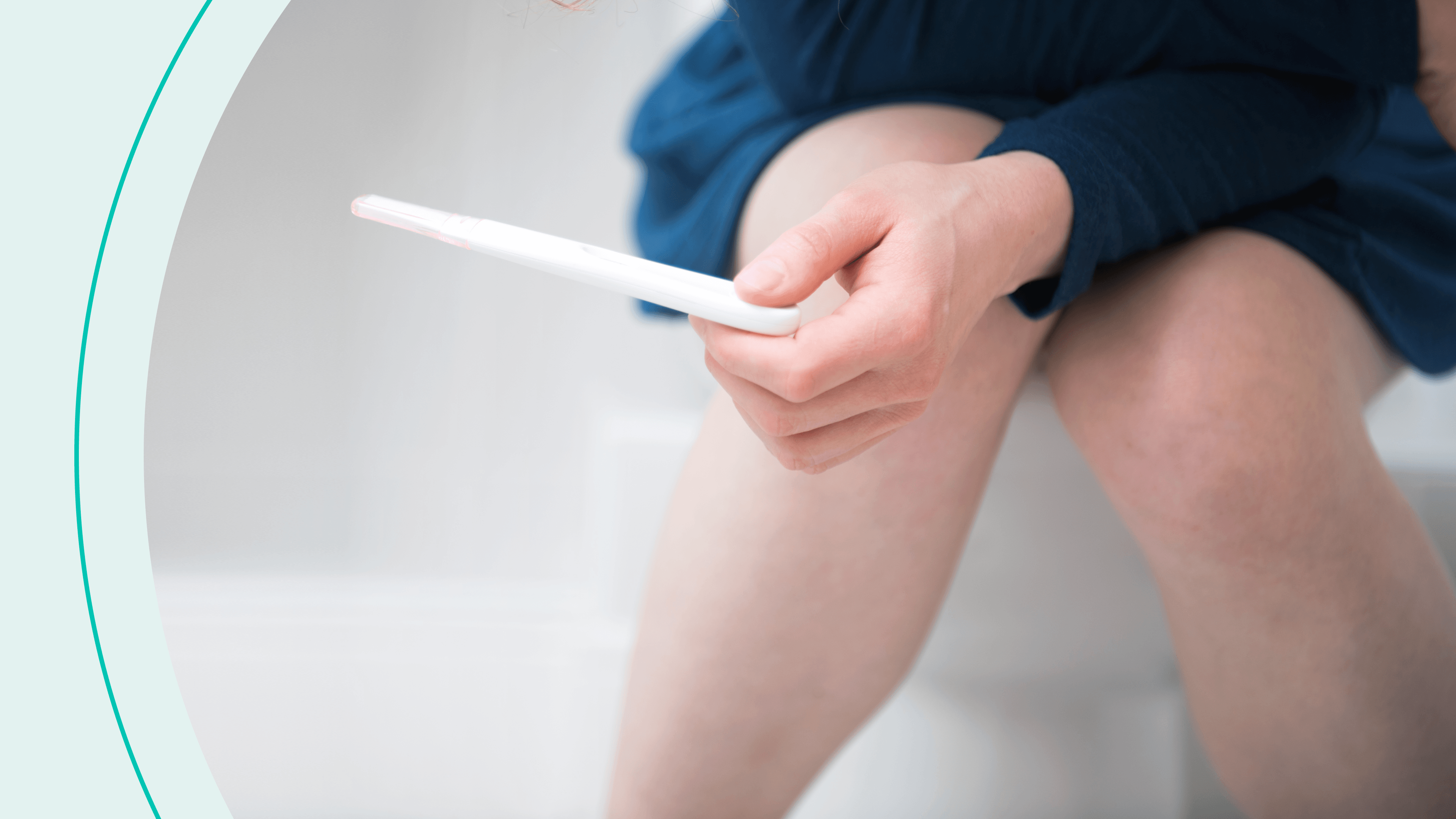This content is for informational and educational purposes only. It does not constitute a medical opinion, medical advice, or diagnosis or treatment of any particular condition.
No matter where you are in your pregnancy journey, miscarriage can be a devastating loss. And that includes chemical pregnancies, aka miscarriages that occur within the first five weeks of pregnancy. But like most miscarriages, they’re widely misunderstood. So we spoke with board-certified OB-GYN Dr. Amy Addante to break down exactly what chemical pregnancies are, why they happen, and what they mean for you and your fertility journey.
What is a chemical pregnancy?
A chemical pregnancy is when an egg gets fertilized but stops developing, explained Dr. Addante. “We know that there has been some sort of fertilization event,” she said. “But it was never large enough for us to be able to see it on the ultrasound.”
It takes place early. During the window of time before it can be detected on an ultrasound, but after there’s high-enough levels of hCG (human chorionic gonadotropin — the hormone released during pregnancy) to result in a positive pregnancy test.
Chemical pregnancies often happen so early on that many people don’t even know they are pregnant yet, and don’t even realize what has happened (more on that later).
Is a chemical pregnancy different from a miscarriage?
A chemical pregnancy is a type of miscarriage. A very early one. But a loss is a loss. So if you’ve had a chemical pregnancy, no matter how early, your experience — whether you have feelings of grief or relief — is valid.
What causes a chemical pregnancy?
A chemical pregnancy can be caused by:
Chromosome abnormalities. Which are the cause of about half of all miscarriages that happen during the first trimester. Normally, during conception, the egg and sperm each have 23 chromosomes, and combine for a total of 46 total chromosomes in the zygote. But if the number is higher or lower on either side, it can cause a chemical pregnancy.
The uterine lining being too thin for the fertilized egg to implant.
An IUD that’s in place at the time of conception.
Certain medical conditions that “can increase your risk of having a miscarriage,” Dr. Addante said. Like high blood pressure or uncontrolled diabetes.
It’s unclear exactly how often chemical pregnancies occur. But one study says it can happen in 8% to 33% of all pregnancies. Also important to note: Having one chemical pregnancy doesn’t necessarily mean that you’ll continue to have them. And it has nothing to do with your lifestyle. In short, there’s nothing ‘wrong’ with you.
What are the signs of a chemical pregnancy?
Some people may not know they’ve experienced a chemical pregnancy until after it happened. But symptoms of a chemical pregnancy can include:
Getting your period late.
Getting your period after a positive pregnancy test. Or getting a positive test result followed by a negative result a few days or weeks later.
Experiencing a period that’s heavier than usual with more intense cramps.
Noticing blood clots during your period.
But if things seem off, get checked by a doctor. “Anybody that's having pain or bleeding, and they have a positive pregnancy test, definitely needs to contact their healthcare provider,” Dr. Addante said.
I might be experiencing a chemical pregnancy. Do I need to see a doctor?
There’s no treatment for a chemical pregnancy, and they usually don’t require it. But it’s still worth a visit to the doctor to make sure nothing else is going on. A doctor may help you confirm if it is in fact a chemical pregnancy, and they may also be able to provide resources for your mental health.
How can I cope with a chemical pregnancy?
Don’t feel like you need to brush it off. One study showed that nearly 40% of women who experienced miscarriages showed symptoms of post-traumatic stress disorder. And the mental health impacts may be worse for Black women or women with a history of infertility or prior miscarriages. Because these groups are more likely to experience depression after a miscarriage.
If you experience a chemical pregnancy, give yourself as much time and space as you need to process it. Lean on support from friends, family, or a mental health professional. And share your story with people you trust. “Being able to more openly have a dialogue with the people we know about these things will show us just how common it is,” said Dr. Addante.
theSkimm
A chemical pregnancy can bring just as many emotions with it as other miscarriages. And whatever you feel about it is valid. Take your time processing, get the help you need if you can, and go easy on yourself.
This content is for informational and educational purposes only. It does not constitute a medical opinion, medical advice, or diagnosis or treatment of any particular condition.
Live Smarter
Sign up for the Daily Skimm email newsletter. Delivered to your inbox every morning and prepares you for your day in minutes.

